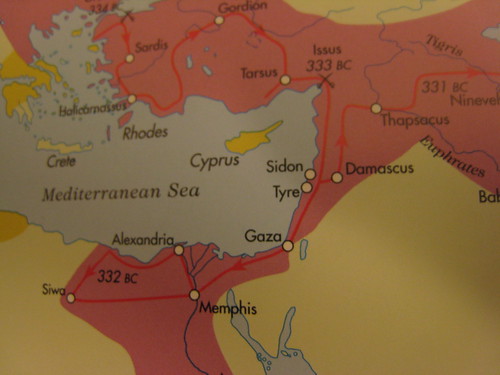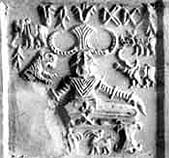Seven rod shaped samples of dirt gathered from the sea floor of Alexandria
harbor suggests that there was a thriving urban center there, known
as Rhakotis, or Râ-Kedet, around 1000 BCE. The city that was built over
this ancient fishing village by Alexander of Macedonia, in 332 BCE, became
famous for the light house built on the island of Pharos and library.
“Alexandria was built on top of an existing, and perhaps quite important,
settlement, maybe one that was minimized in importance because we can’t see it
now,” Stanley told LiveScience. “Nothing really concrete about Rhakotis has
been discovered until now.”Alexander the Great likely chose this area for Alexandria since it had a bay
to protect a harbor against fierce winter storms in the Mediterranean.“There are very few places in the Egyptian Mediterranean coast where the
coastline is not smooth,” Stanley said. “This would have been the best place
to establish a harbor.”Stanley added this bay was even noted in Homer’s epic Odyssey: “Now in the
surging sea an island lies, Pharos they call it. By it there lies a bay with a
good anchorage, from which they send the trim ships off to sea.”This area might have been a haven throughout ancient times for the Greeks,
Minoans, Phoenicians and others. Future research could shed light on the life
of mariners at this settlement before Alexander came.“Virtually nothing is known of the people who would have lived there,” Stanley
said.[Hidden
Egyptian City Found Beneath Alexandria ]
This is similar to how underwater archaeology
in the coast of Gujarat revealed the existence of the
remains
of an ancient city near present day Dwaraka.
The discovery of ancient cities beneath the present day ones also reveal a great
deal about the continuity of cultures and how conservative they were.
Archaeological excavations in Mohenjo-daro reveal intense conservatism. Among
the nine strata of buildings that have been revealed, new houses that were built
over the previous ones were found to have almost the same floor plan for nearly
a millennia. This conservatism was seen even in the script which remained
unchanged even though they had contacts with other civilizations like
Mesopotamia.





